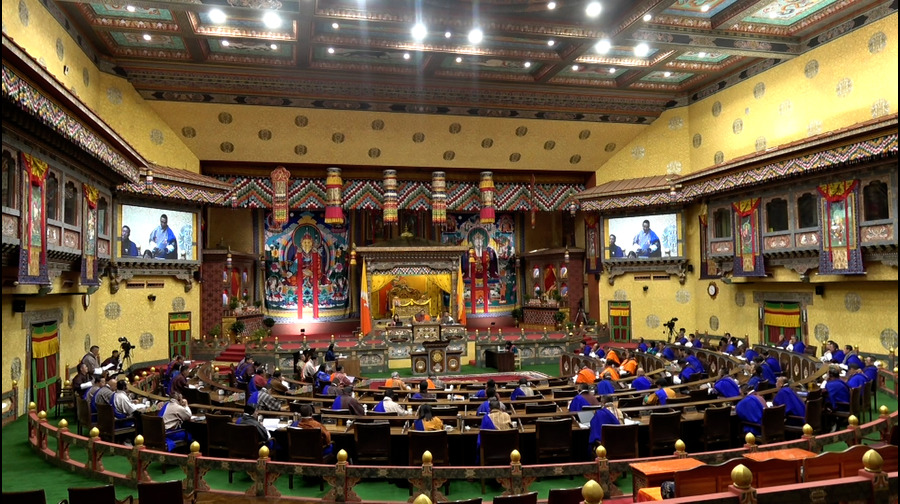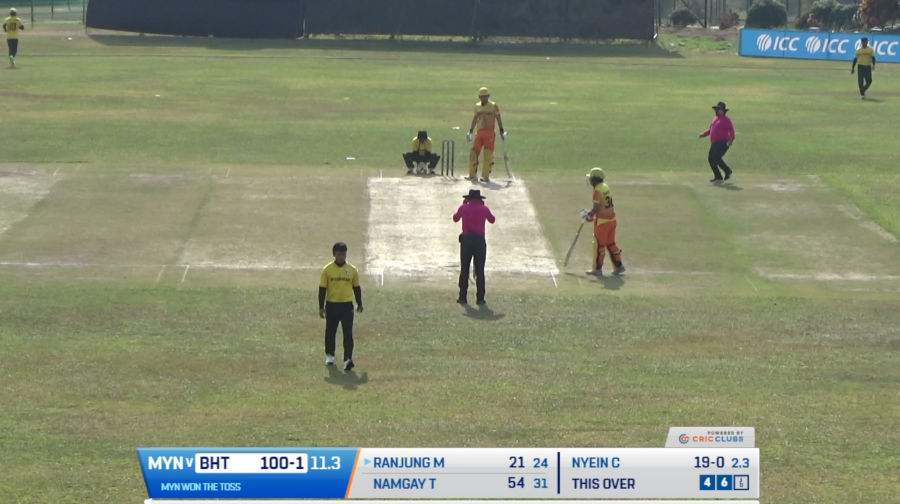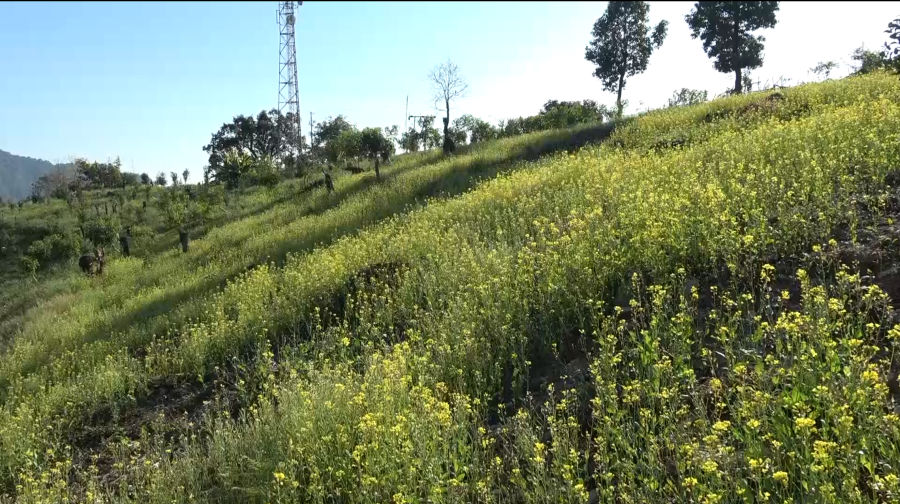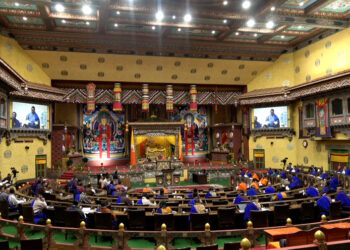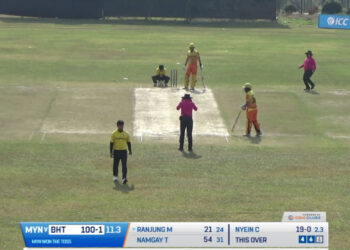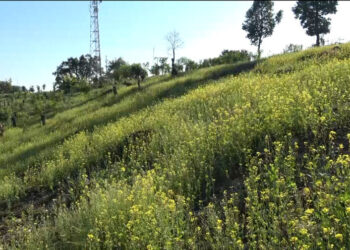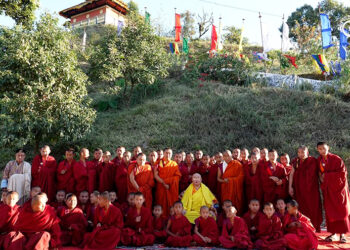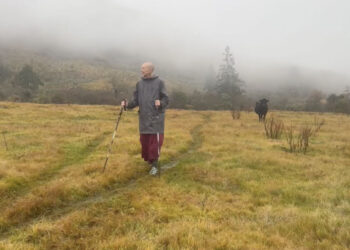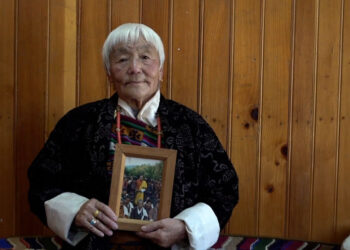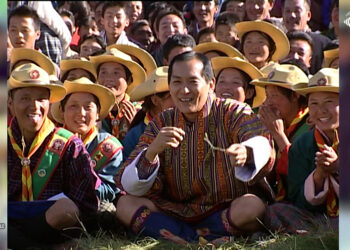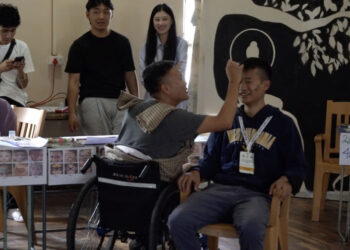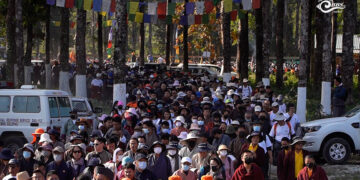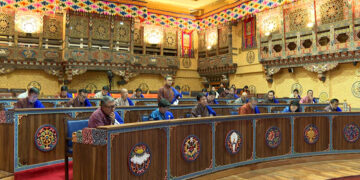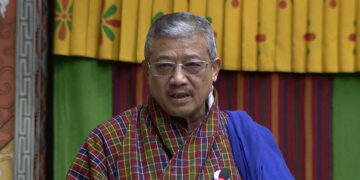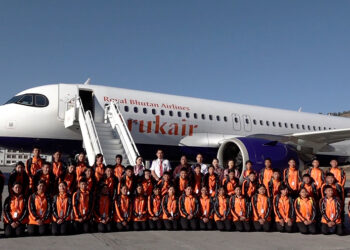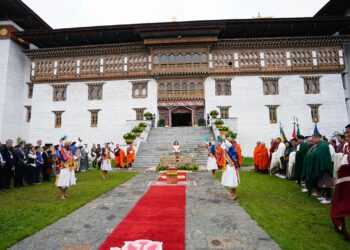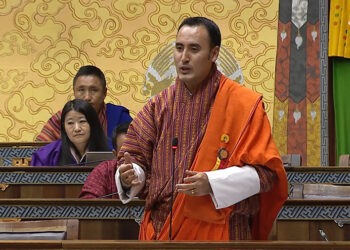Featured News
Ageing population and waning youth interest threaten Dagsa’s Kharphu festival, Monggar
People of Gongdu Gewog’s Dagsa Chiwog in Monggar are struggling to sustain their biennial local festival called Kharphu, due to...
Paro turns up the volume with Bhutan’s first Asia Rock Festival
As prayer flags fluttered in the evening breeze and the sun set behind Paro’s dzong, monasteries and temples, a new...
His Holiness the Je Khenpo concludes spiritual tour
His Holiness the Je Khenpo concluded the almost month-long spiritual tour across the country. Today, His Holiness visited Pedkar Choeling...
Asia Rock Fest–Bhutan marks new era for local rock scene
Bhutan is about to experience something completely new, its first full-scale rock music festival. But this moment did not happen...
British nun Ani Pema Deki completes 400km trek from Haa to Trashigang, raising over Nu 9 M for children with disabilities
Ani Pema Deki, also known as Emma Slade, has completed her 400-kilometre walk across the Trans-Bhutan Trail to raise funds...
Moments with the Great Fourth: memories that still touch Bhutanese hearts
For many Bhutanese, a moment shared with His Majesty the Fourth Druk Gyalpo remains one of the most treasured moments...
His Majesty the Fourth Druk Gyalpo’s timeless vision of happiness still shapes Bhutan’s future
In a world chasing growth through numbers, Bhutan chose to measure something far deeper: happiness. As the nation celebrates the...
JSW Law Graduate makes mark in the U.S., clears New York Bar Examination
A young Bhutanese woman lawyer has made a mark in the international legal arena by passing the prestigious New York...
Thimphu’s YDF hall buzzes with Deaf Week celebration
The YDF Hall in Thimphu came alive today with laughter, music, and the vibrant spirit of inclusion as the Disabled...
Journey of Karma Raygel, rescued elephant calf thrives under care in Jomotshangkha
Seven months ago, the officials of Jomotshangkha Wildlife Sanctuary in Samdrup Jongkhar rescued a young elephant calf from the wild....
Politics
FASTag access for Bhutanese vehicles nears resolution as India submits SOP draft
The foreign affairs and external trade ministry has received a draft Standard Operating Procedure from the Indian government concerning the...
Popular
-
47 students depart for Bangkok under Tongsa Penlop Inspire Programme
-
Businesses in Haa struggle as population continues to shrink
-
Paro installs reverse vending machine to tackle growing waste
-
New girls’ hostel to ease accommodation challenges at Faculty of Traditional Medicine
-
National Assembly (Amendment) Bill 2024 declared dead bill after Joint Sitting vote
Casino en ligne avec mise en argent réel
Choisissez un casino en ligne avec argent réel pour jouer à vos jeux préférés et retirer vos gains en toute simplicité. Avec des options de paiement rapide et un environnement réglementé, vous bénéficiez d’un divertissement sûr et fiable.
Tender for the Supply of Transmission equipment
The Bhutan Broadcasting Service Corporation Limited would like to invite sealed quotations from eligible firms for the “Supply of Transmission...
National Assembly (Amendment) Bill 2024 declared dead bill after Joint Sitting vote
The National Assembly (Amendment) Bill of Bhutan 2024 was deferred indefinitely and declared a dead bill following a vote in the...
Historic century powers Bhutan to big win over Myanmar at T20 International Bilateral Series
Bhutanese cricket witnessed a historic moment today as Namgay Thinley became the first player from the country to score a...
Traditional archery craft brings steady income to artisans in Punakha
As interest in archery grows, crafting traditional archery equipment has become a reliable source of income for many local artisans....
Zakar
Recent News
- Tender for the Supply of Transmission equipment
- National Assembly (Amendment) Bill 2024 declared dead bill after Joint Sitting vote
- Historic century powers Bhutan to big win over Myanmar at T20 International Bilateral Series
- Traditional archery craft brings steady income to artisans in Punakha
- Steel arch bazam opens in Phuentshogling
News Category
- Accidents
- Agriculture
- Announcement
- Audience Survey Report
- Business
- Crime/Legal
- Culture
- Development
- Disaster
- Economy
- Education
- Entertainment
- Environment
- Feature
- Featured
- Festival
- Global Peace Prayer Festival
- GMC
- Gyalsung
- Headlines
- Health
- HYDROPOWER
- K4 70th Birthday special feature
- Legal
- Literature
- Livestock
- Media
- Other Stories
- Politics
- RCSC
- Recent stories
- Religion
- Sci/Tech
- Social
- Sports
- Technology
- Textile
- Tourism
- Uncategorized
- Video
- Video Story
- Wildlife
© 2024 BBSCL. All rights reserved.

